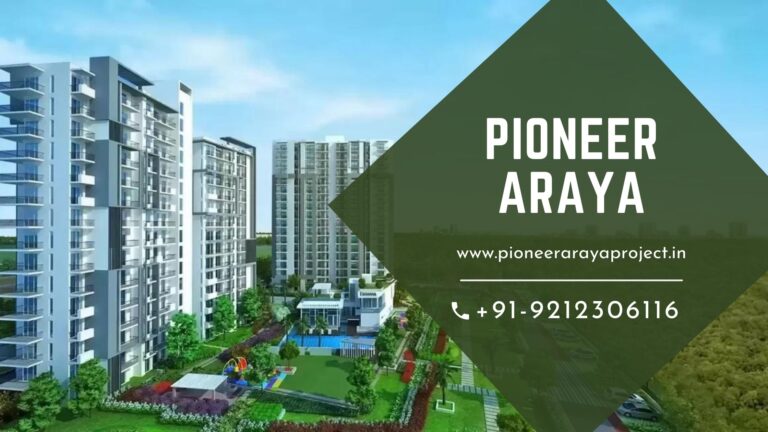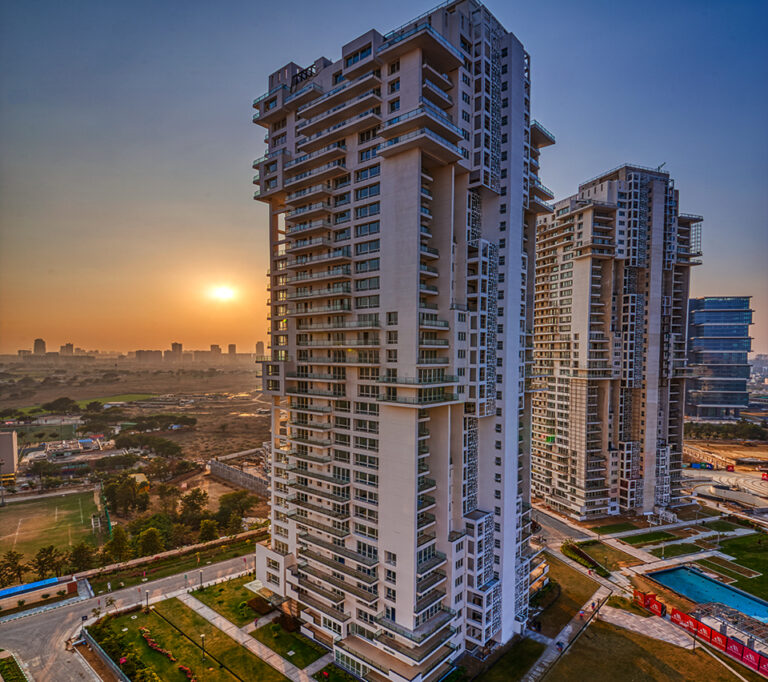A Comprehensive Guide For Legalities of Buying Real Estate in Gurgaon
A Complete Reference to Gurgaon Real Estate Laws Regarding Purchasing
Residential Projects in Gurgaon is a city with a lot to offer. It’s home to some of India’s most prestigious companies and businesses, as well as one of the country’s fastest growing IT hubs. But if you’re thinking about buying real estate in Gurgaon, there are a few laws that will affect your purchase decisions and impact your overall experience as an investor or renter.
Overview of Gurgaon Real Estate Laws
The Real Estate (Regulation & Development) Act, 1994 (RERA) is a law that regulates the business of real estate in India. It was enacted by the Parliament of India to promote transparency, accountability and good governance in respect of all activities concerning residential housing development.[1] RERA is enforced by its own regulatory body: The Real Estate Regulatory Authority (RERA).
The Projects in Gurgaon Gurgaon Laws are based on the Indian Constitution,[2] Haryana Land Revenue Act[3] and other state laws such as those relating to tax exemptions for land developers.[4][5]
Gurgaon’s legal system is based on several statutes enacted by both state and central governments including:
Government Regulations and Restrictions on Property Purchases
You should be aware of the following government regulations and restrictions on property purchases:
- The Haryana Town Planning and Development Control Act, 1976 (Haryana Act 1/1980) defines townships as “a nucleus or centre” that serves as a major residential area with some commercial activities, where all buildings are tenement blocks and where there is no development beyond 4 storeys. This act also prohibits people from purchasing properties within townships unless they are first approved by the local authority.
- The Punjab Urban Tenements Act 1976 (Punjab Act 19/1979) regulates how residential complexes can be built in urban areas such as Gurgaon. It states that each plot must have at least 20 percent open area; this means that if your plot has more than 80 percent covered by buildings, it cannot be sold as an independent plot since it would not meet this requirement. In addition, only single-storey buildings are allowed within these precincts–no multi-story apartments may be constructed without obtaining permission from authorities first!
Land Records and Property Titles
Title search is the process of verifying ownership of a property. It’s done to ensure that you are purchasing an actual property, not someone else’s.
In order to do a title search, you must contact your local registrar office and have them issue a copy of the title deed (the final proof of ownership). Your agent should be able to guide you on what documents are required during this process. The cost will depend on where you live and how long it takes for them to deliver your copies after receiving payment from both parties involved in any transaction involving New Projects in Gurgaon/Delhi NCR region like Delhi NCR city area or other parts nearby such as Ghaziabad or Noida etc..
Restrictions on Transfer of Property
The right to transfer property is restricted. The government can restrict the transfer of property, limit its transfer to certain people and locations, and even limit its use.
For example, a residential building could be designated as a heritage site and therefore cannot be sold or leased out as a private residence for more than 10 years after it was constructed.
Land Acquisition and Compensation
Land acquisition is the process of acquiring and buying land from the owner. It can be done through a government auction or by paying a predetermined amount in cash.
This section deals with the laws surrounding land acquisition and compensation for it.
Taxation of Real Estate Transactions
- Property taxes are paid by the seller.
- Property taxes are paid by the buyer.
- The tenant pays these taxes on behalf of the landlord (i.e., if you are renting your home and paying rent, then you need to pay these taxes).
- If you own property, then you will receive a bill from Haryana State Civil Supplies Corporation or Directorate of Urban Land Records every year for property tax calculation purposes; this bill is usually sent out during January-February each year in time for payment before April 15th so that one can avoid penalties associated with late payment penalties for late payments
Financing of Real Estate Transactions
There are a few ways you can finance your Ready to Move Projects in Gurgaon. Here are some of the most common ways:
- Banks and financial institutions will lend you money for your purchase. Banks require collateral, such as property deeds or stocks, to secure their loans. If you don’t have any assets, banks may ask for a guarantor (someone who will pledge his/her own property as collateral).
- You can also get a home equity loan from banks or other financial institutions like HDFC Bank Ltd., ICICI Bank Ltd., Axis Bank Ltd., HDFC Bank Ltd., Kotak Mahindra Bank Ltd., Punjab National Bank etc.. These loans typically offer lower rates than other types of loans because they’re secured by the equity in your house instead of requiring cash down payment upfront like conventional mortgages do–and they come with lower interest rates as well! However there are costs involved with taking this route so make sure that everything works out before signing anything off on paper!
Due Diligence Requirements for Real Estate Purchases
Due diligence requirements are the basic requirement when buying a property, and they vary depending on the type of property you’re interested in. For example, if you want to buy an apartment or house in Gurgaon’s residential colonies, due diligence requirements will be less stringent than those for commercial properties.
Due diligence is designed to protect buyers from fraud and other problems that can arise during real estate purchases–and this protection extends not only for buyers but also for sellers.
Rights and Responsibilities of Buyers and Sellers
- The buyer and seller must be of legal age.
- The buyer and seller must have legal capacity to enter into a contract.
- The buyer and seller must be able to understand the terms and conditions of the contract. In other words, they must not be under any disability that prevents them from understanding what they are buying or selling (for example, mental retardation).
Dispute Resolution and Litigation
- How to resolve a dispute?
- How to avoid disputes?
- What to do if you are in a dispute?
If you find yourself in a spat with your neighbour or someone else, here’s some advice on how to deal with the situation:
Legal Advice for Real Estate Purchases
The importance of legal advice
It is important to note that the lawyer is not just a supplier of documents, but also an expert in real estate law. He or she can assist you with due diligence, dispute resolution and other legal matters related to buying your property.
Finding a good lawyer
You should look for someone who has been practicing this field for more than 10 years and has expertise in all aspects of buying or selling Luxury Projects in Gurgaon Gurgaon. The best way to find such a person is by asking around friends and family members as well as lawyers who have worked with them before.
Brokerage and Agent Regulations
A real estate agent is not required to be licensed. However, you can find out if your agent is licensed by contacting the Office of the Registrar
The Association of Realtors (AR) has developed a code of ethics that all brokers must follow in order to maintain their membership status with AR and/or receive insurance coverage through AR’s Professional Indemnity Program (PIP). The code also stipulates that all agents must disclose any known defects in the property being sold, including those related to construction materials used for remodeling projects done by third parties on behalf of an owner who may have hired them because he/she either does not know what else would be done or thinks these contractors will do better work than his own contractor would have done without charging more money.*
Building and Construction Regulations
Building and Construction Regulations
The Building and Construction Law (BCL) is a legislative act that regulates the construction of buildings, housing estates, residential premises and other structures within the territory of India. It was enacted in 1959 by Parliament to safeguard public health, safety and welfare by requiring complete compliance with specified standards for sites for new buildings; design details such as size limits; materials used; fire prevention measures like sprinkler systems etc., what kind of construction work should be undertaken on different types of properties including private houses/residential units etc., how long it should be permissible before commencement work begins on any type of development project or project site , how long after completion there should be interim period before handing over possession of land plot or plot area occupied by building contractor/builder without delay after completion thereof
Regulations on Property Maintenance and Repair
As a landlord, you must ensure that the property is maintained in a habitable condition. This means that it should be free from structural defects and damage to walls, ceilings and floors; if there is any damage or wear on these parts of your home, then you must repair them before leasing out again. You should also ensure that all fixtures such as taps and shower heads work properly when they are installed by professionals who are licensed by Haryana Urban Development Authority (HUDA).
You also have an obligation to ensure that repairs are carried out promptly after receiving complaints about defects in the structure or structure itself. If this does not happen within seven days of receipt of notice from tenants or their agents then they may take legal action against you under Section 8(1)(a) of The Rights Act 1948 which states “A person shall not refuse access to any part of his house without reasonable cause”.
Laws Regulating Rental Property Management
Rental laws vary by state and are complex and often confusing. The general rule of thumb is that a landlord can only charge a tenant for what they spent on the property in their lease, plus a maintenance fee if applicable. If you’re buying an apartment, condo or house as your primary residence but have been renting it out for some time before purchasing, there may be additional requirements that need to be met in order to qualify for tax benefits from selling your new home at market value rather than below market value (the difference between what it costs now vs when you bought it).
The following list gives an overview of some key features found across all three types:
As the 2bhk flats in Gurgaon evolves, so too do the regulations. These rules and restrictions can help you make informed decisions about your purchase or sale of property in Gurgaon. It is important to know what these laws are and what they mean for you as a purchaser or seller, so that you can avoid any potential legal problems down the road.








